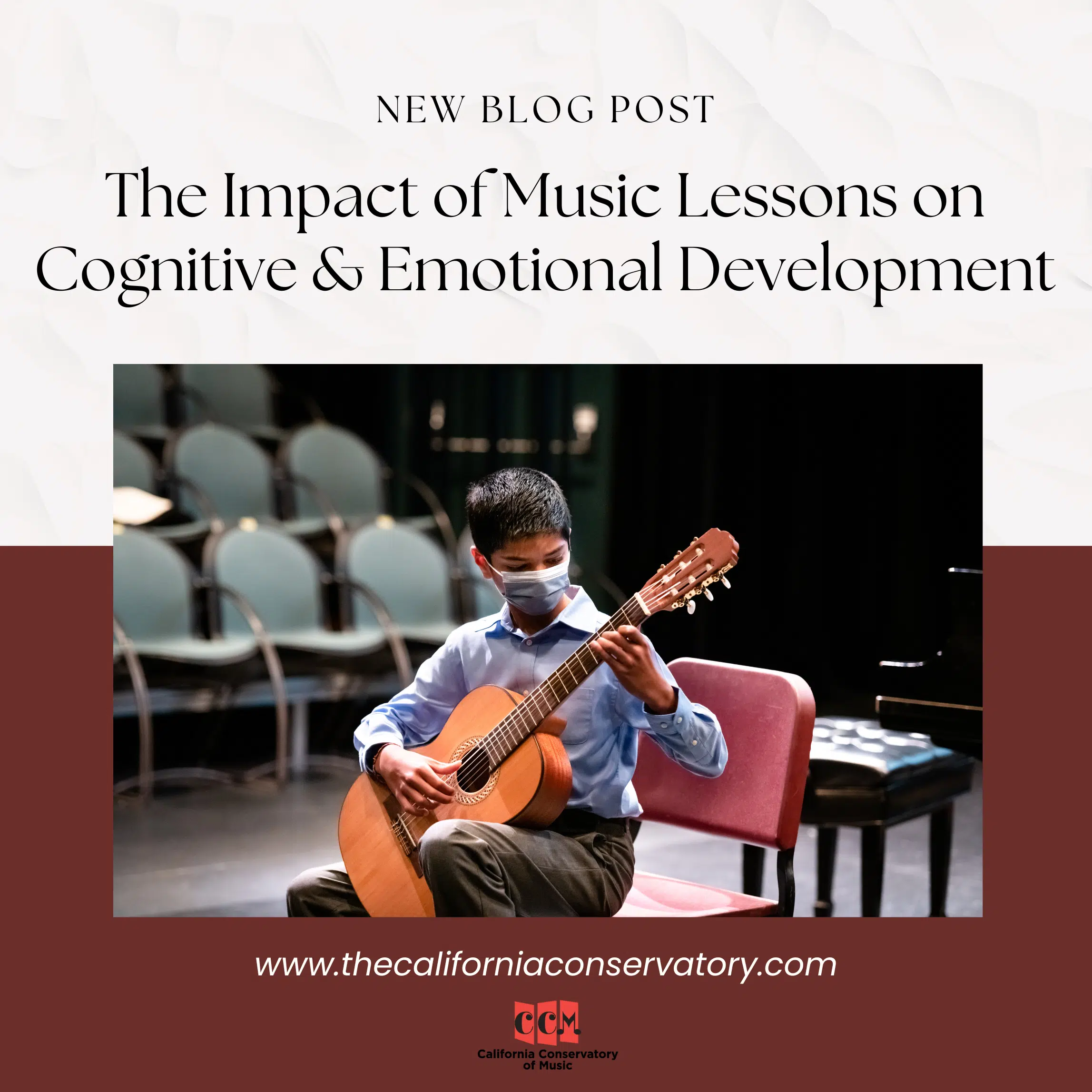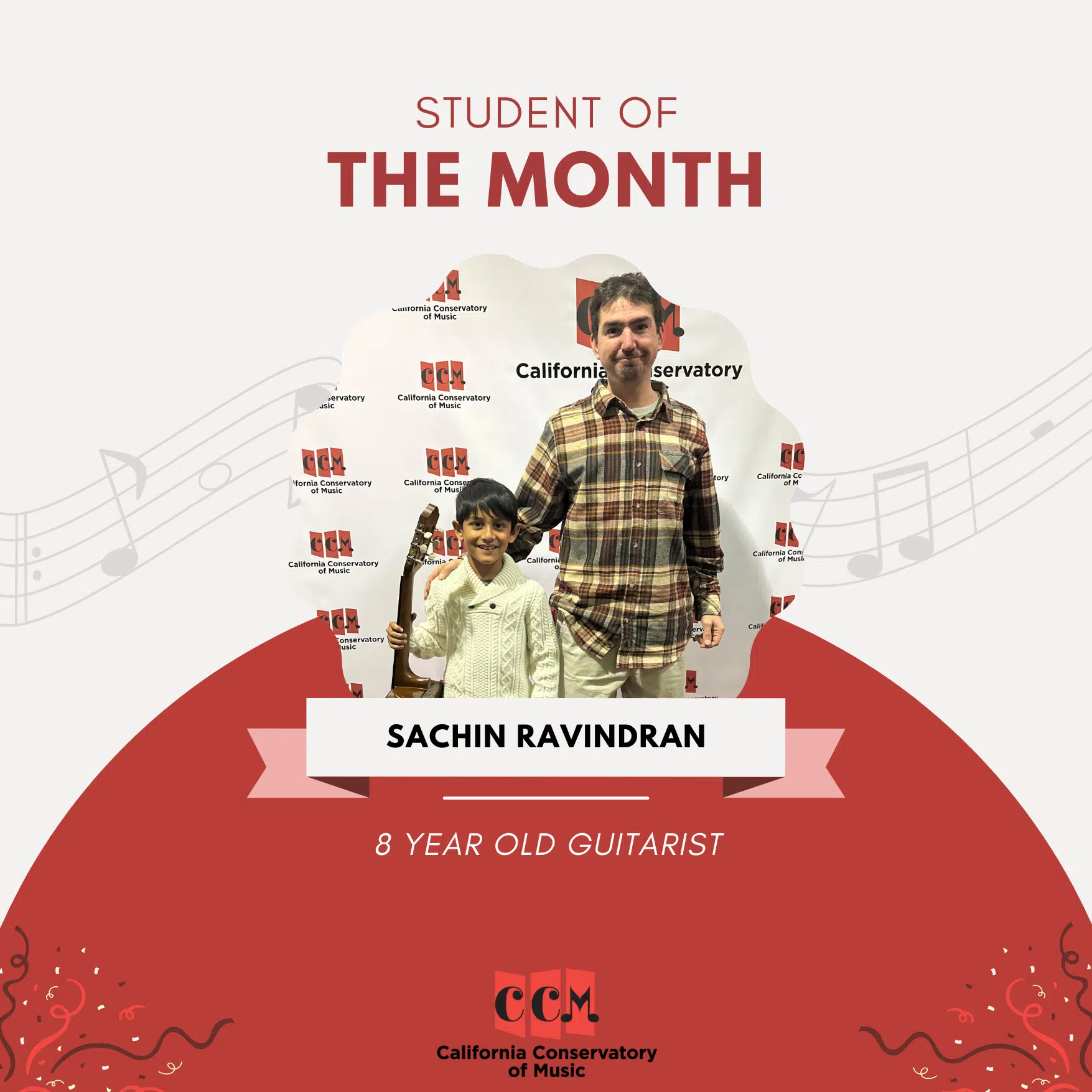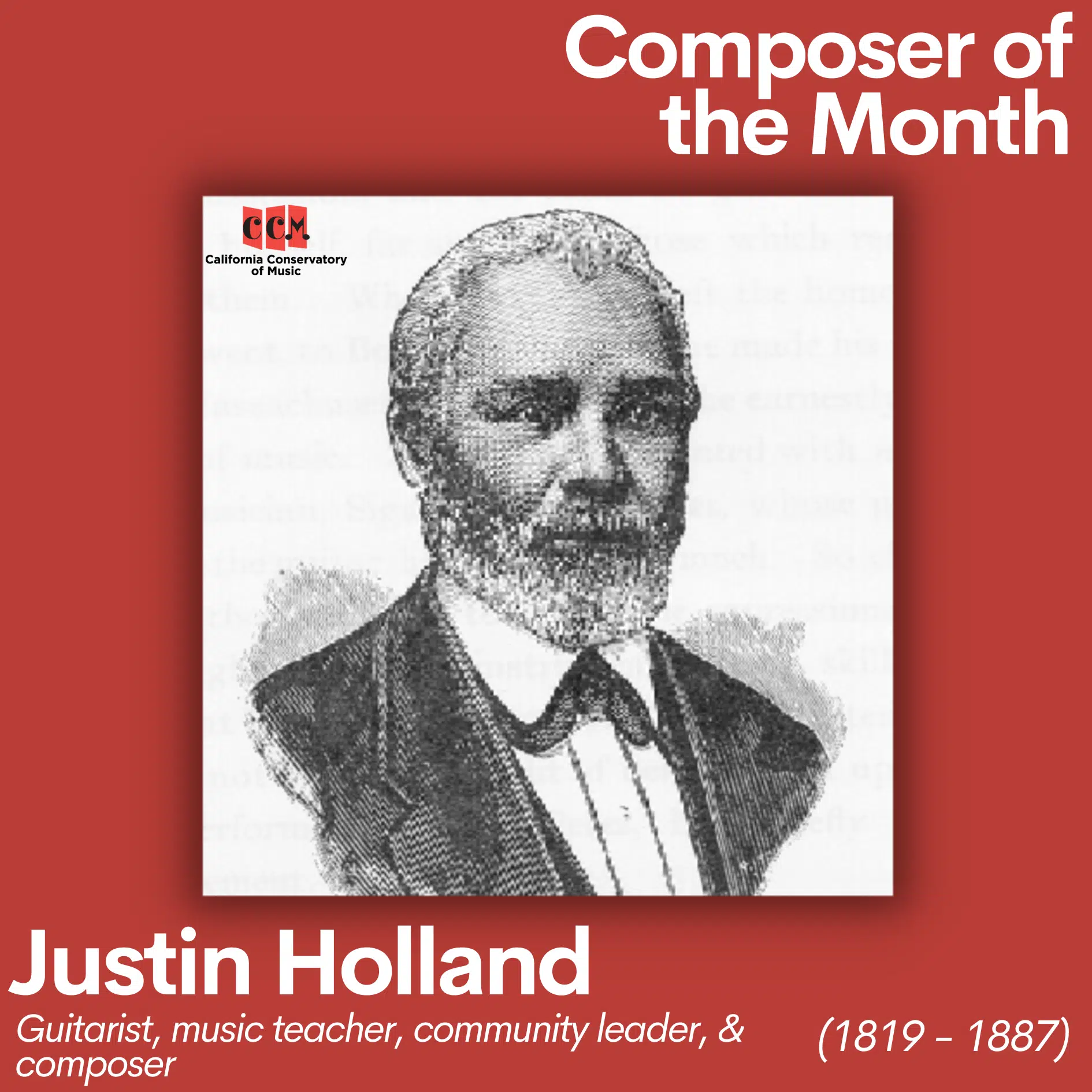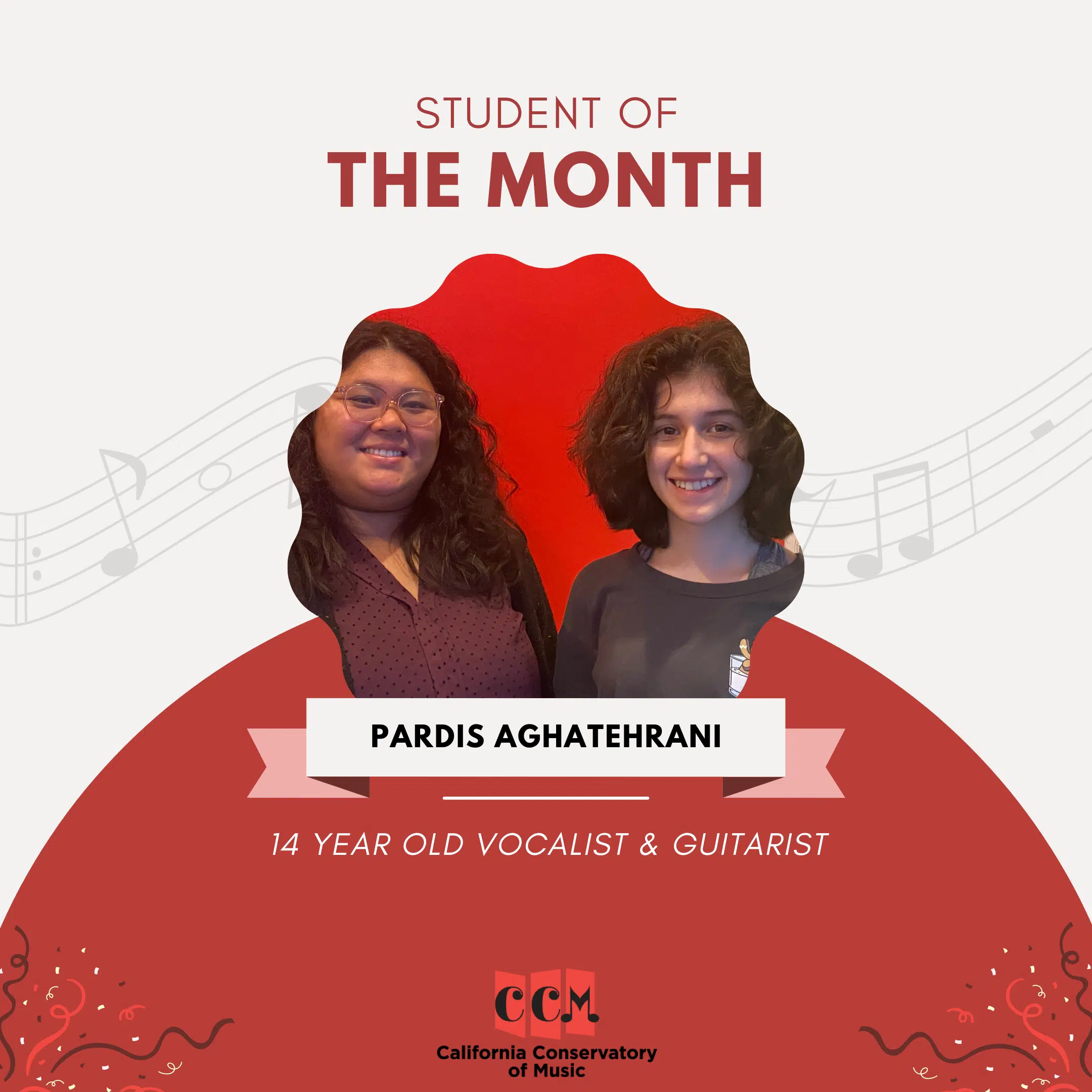Check out the video blog below on the benefits of music or continue reading for the full blog!
Music education is a fun and enjoyable experience for children, but also has a beneficial impact on their cognitive development and academic performance. Many studies have shown that having regular music lessons can improve skills, such as memory, attention, and spatial-temporal reasoning. Read below for more info on the benefits of music!
Spatial-temporal reasoning helps with mental rotation and visualizing the movement of objects, which can be exceptionally useful for math and science. Research findings also suggest that music lessons can help children develop more effective problem-solving and critical-thinking skills.
Additionally, music lessons have a direct correlation with academic performance. Studies have shown that children who received regular music instruction for at least one year scored higher on reading and math tests compared to those who did not take music lessons.
Children’s memory and attention skills are also improved with music instruction. Musicians have a better working memory capacity than non-musicians and this is due to the fact that playing music requires a lot of focus and concentration. This is instilled through regular practice and paying close attention to the notes and rhythms. Over time, this can help improve the ability to focus and retain information, which assists in successful learning in other subjects as well.
Music lessons don’t only impact cognitive skills, they also positively affect children’s emotional well-being. Playing an instrument instills confidence and good self-esteem for children. Performing in front of an audience gives them the opportunity to showcase their skills and take pride in their accomplishments. This helps build their confidence and make them feel more self-assured, which ensures a positive well-being overall.
If you’re looking for a way to help your child grow and develop, consider enrolling them in music lessons today at the California Conservatory of Music.
Sign up for a free lesson here!
References:
“Frontiers in Psychology” (2014)
“PLoS ONE” (2011)
“Journal of Neuroscience” (1997)
“Frontiers in Neuroscience” (2015)
Subscribe to our YouTube Channel for more!
This February, we’re excited to feature CCM guitar student, Sachin Ravindran, as our February 2023 Student of the Month! Sachin has been taking guitar lessons at CCM for around 4 years. He currently studies at CCM’s Redwood City location with Teacher Chris. Sachin is committed to daily practice and is always making consistent improvements!
Student of the Month – Pardis Aghatehrani
What is your name?
My name is Sachin Ravindran.
How old are you?
I am 8 years old.
Who is your teacher?
My teacher is Chris Mann.
How long have you been taking guitar lessons?
I have been learning guitar for almost 4.5 years.
What advice would you give to a guitar student just starting out at CCM?
Learning a new instrument requires a lot of practice. It might feel hard at first but keep practicing and you will see yourself getting the hang of it.
What piece are you looking forward to learning someday?
I am excited to start Suzuki book 5 soon and look forward to learning Allegro Vivace by Mauro Giuliani because it is a very long piece that has many eighth and sixteenth notes and I want to get better at playing faster pieces.
What is your favorite thing about playing guitar?
I really enjoy learning how to play arpeggios because they help me play a song faster and I find that fun. My favorite song is Allegro by M. Guiliani in Suzuki book 4.
What is your favorite food?
My favorite foods are tacos and pizza.
Do you have a pet?
I don’t have any pets but would like to have a dog.
Do you play any sports or do any other activities outside of music lessons?
In addition to guitar, I take swim lessons and play basketball.
What do you want to be when you grow up?
I want to be an athlete when I grow up, either a football or a basketball player.
What is your most memorable experience at CCM?
My first concert was my most memorable experience because it was on my dad’s birthday. I played Perpetual Motion from Suzuki book 1 and I remember being so nervous about performing in front of everyone. My dad sat with me until I performed and helped calm my nerves.
……………………………………………………………………………………………………………………
Parent Spotlight – Madhavi Ravindran
Regarding guitar instruction, what are you most proud of your child accomplishing?
Sachin has gained a lot of confidence when he plays guitar and performs. I am proud that he has a positive attitude when it comes to tackling hard pieces and is always willing to put in the extra effort to fix his mistakes and perfect a song.
What advice would you give a new parent starting in the program?
I know getting your child to practice regularly can be a bit stressful and tedious, but it has been an additional way for my son and I to bond. Although I did not learn an instrument growing up, I love music and have learned so much about guitar through Sachin. So much so that I am equally excited about the next piece he is learning and that makes him more motivated to practice.
Why did you decide to give your child a musical upbringing?
Music, in any form, has always been something my husband and I wanted our kids to learn since there are so many benefits to child development. When Sachin was a baby he always gravitated towards the guitar in his toddler music lessons or at home with his toy musical instruments. He really enjoyed being goofy on the guitar and serenading his sisters that we decided early on to start formal guitar lessons.
For Black History Month, we’re exploring one of the earliest American guitar virtuosos — Justin Holland. Holland built a steady musical career as an arranger, composer, and performer, all before the turn of the Civil War.
Many people say Holland was one of the most important guitarists of his generation, avidly endorsing Christian Frederick Martin, who built and distributed the ever-popular Martin Guitars.
Justin Holland’s Personal Life
Holland was raised in Norfolk County, Virginia, and was the son of a farmer. When he was young, he showed a clear talent for music, even though there were few musical opportunities in his area. Luckily, he attended church, where he was able to hone in on his musical abilities.
Holland moved to Boston after his parents passed away when he was 14, though ended up staying in Chelsea, Massachusetts for a few years. It was here that he met Spanish musician and guitarist, Mariana Perez, who taught Holland how to play the guitar.
Perez ended up being one of Holland’s most prominent musical influences, alongside Simon Knabel, who was one of the members of the Ned Kendall’s Brass Band, and William Schubert.
Holland noted that Schubert was a “brilliant” guitarist and performer, helping him make tons of progress on his instrument.
Because Holland was young and did not have the support of his parents any longer, he worked for many years as a laborer while perfecting his craft.
When he was 20 years old, he attended Oberlin College in Ohio, staying there for two years before traveling to Mexico to learn Spanish, as well as more about the Spanish guitar methods. It was during this time that Solomon Northrup, a fellow musician and fiddle player, was abducted by slave traders while in Washington D.C. Northrup was the man who wrote about his 12 years in bondage in Twelve Years a Slave.
In 1845, he returned to Oberlin and got married, becoming the “first black professional” in Cleveland.
He taught guitar lessons in Cleveland, seeing high demand for his services. During this time, he also wrote 20 pieces, including Flowers of Melody, Bouquet of Melodies, Gems for the Guitar, and Winter Evenings, all of which became nationally known. Beyond that, he arranged 30 duos for guitar and violin, as well as 30 duos for guitars.
Holland was very conservative in his approach to teaching, gathering a lot of influences and traditional techniques from European guitar masters. He later compiled his teachings into books, including Modern Method for the Guitar (1874) and Comprehensive Method for the Guitar (1876).
Beyond his time as a musician, teacher, composer, and arranger, he was very involved in the American Civil Rights movement. He helped many African Americans throughout the Underground Railroad and corresponded with European masonry groups for recognition and support.
Holland was eventually appointed assistant secretary to the National Negro Convention in 1848. He believed in emigration, similar to his colleague Frederick Douglass, which is why he relocated his family to the West Indies after Haiti offered assistance in 1858. However, after not finding many opportunities for himself in Haiti, he returned to Cleveland.
Holland passed away in 1887, achieving a remarkable measure of success in his short time on earth. His legacy was stamped on civil rights advancements and the development of American guitar playing.
The Influence of Justin Holland’s Music
While it was his playing that garnered him plenty of attention during his lifetime, it was his writing that helped him stand the test of time. After publishing Holland’s Method in 1876, which was the very first and one of the finest guitar instruction methods published during the nineteenth century, he solidified his place as one of the American greats.
Notable Facts
Holland was accepted into Oberlin after the college’s decision to allow African American students to attend in 1835. This was thanks to Asa Mahan, a renowned social reformer and clergyman who became the first president of the institution, arguing strenuously in favor of equal education for all.
Holland showed considerable talent at the young age of eight. He used a small book of verses as a foundation on which to write accompaniments for.
Holland’s set of Scraps from the Operas Arranged For Two Guitars became some of the biggest hits in the mid-1800s.
This January, we’re happy to feature CCM voice student, Pardis Aghatehrani, as our January 2023 Student of the Month! Pardis has been taking voice lessons at CCM for about 4 months. She currently studies at CCM’s Redwood City location with Teacher Chynna. Plus, Pardis has been taking guitar lessons at CCM for just over 5 years! Pardis is always prepared for her classes and did so amazingly at the last recital!
Student of the Month – Pardis Aghatehrani
What is your name?
My name is Pardis.
How old are you?
I am fourteen years old.
Who is your teacher?
My teacher is Teacher Chynna.
How long have you been taking voice lessons?
I’ve been taking voice lessons for almost four months now.
What advice would you give to a voice student just starting out at CCM?
I would probably say that they should practice whenever they can, since voice lessons don’t need much more than your own voice to practice, and to find the fun in it. It might feel a bit weird singing around the house or by yourself in your room at first, but over time it can become one of the most fun parts of your day.
What piece are you looking forward to learning someday?
Some pieces that I look forward to hopefully learning someday would probably have to be “Defying Gravity” from Wicked, or “Candy Store” from Heathers, but that would be far, far in the future. Another fun option could be anything from Taylor Swift’s discography.
What is your favorite thing about singing?
My favorite thing about singing is that it’s fun, it can feel euphoric at times when you can just let your voice go free.
What is your favorite food?
My favorite food is Persian food in general.
Do you have a pet?
Not really, but we have some chickens and bees in the backyard.
Do you play any sports or do any other activities outside of music lessons?
I play volleyball, guitar at CCM and am in a musical outside of my voice lessons.
What do you want to be when you grow up?
Okay, big question, and I don’t really know, I’m just trying to set myself up to have options in the future, but being a Broadway actor could be fun, or maybe working in renewable energy.
What is your most memorable experience at CCM?
My most memorable experience at CCM would probably have to be my first voice recital. It had not been my first recital, nor my first time singing in front of a crowd, but it was the first time in which I had been singing into a microphone like that, and my first time having a voice teacher like Chynna there to help me.
……………………………………………………………………………………………………………………
Regarding voice instruction, what are you most proud of your child accomplishing?
She enjoys singing and has gained confidence since she started the course. Interactive and learning from Ms. Chyna has created significant passion about singing in Pardis, and also enhanced Pardis’s performance in other similar activities such as the musical show at the school.
What advice would you give a new parent starting in the program?
It is a great activity for students to attend. It boosts their confidence and helps the students enjoy their natural talent in using their voice.
Why did you decide to give your child a musical upbringing?
She is passionate about music as it helps her to express her feelings in a beautiful manner.

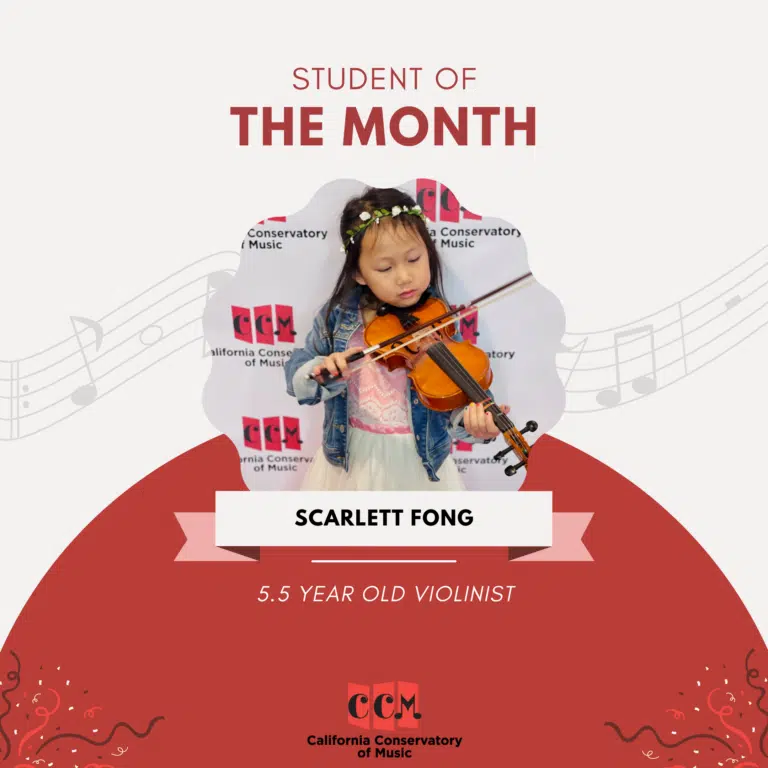
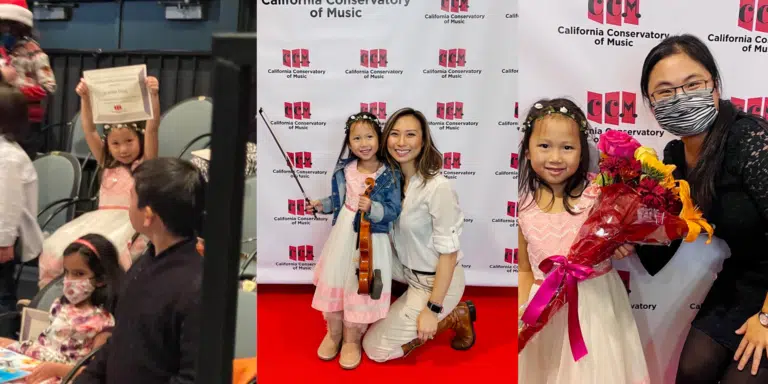
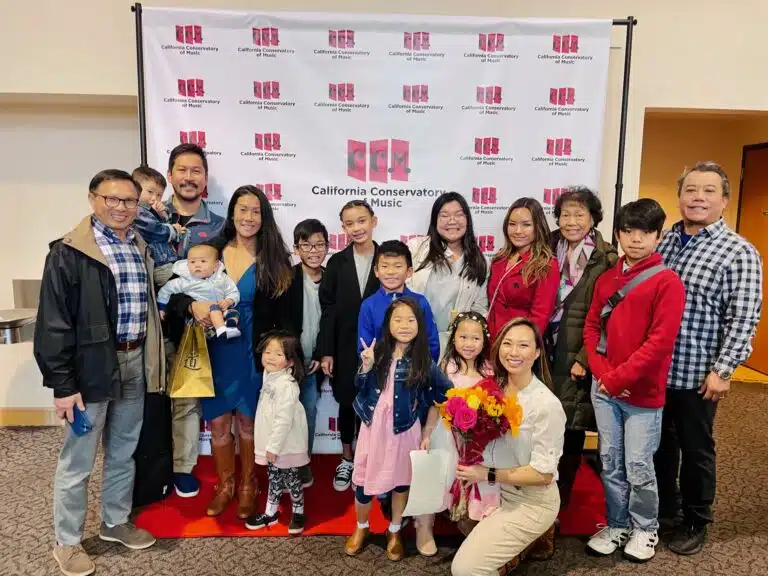

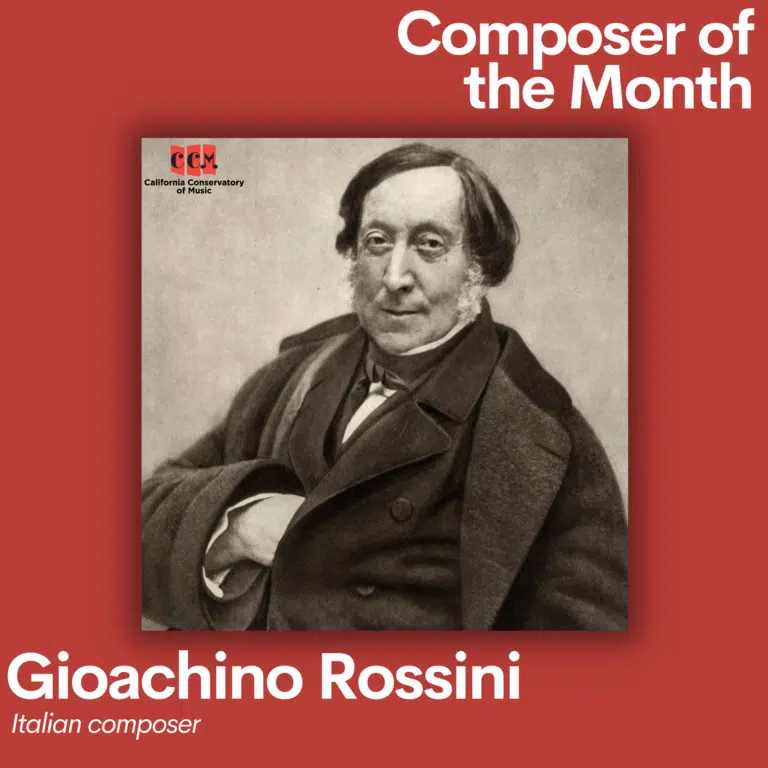

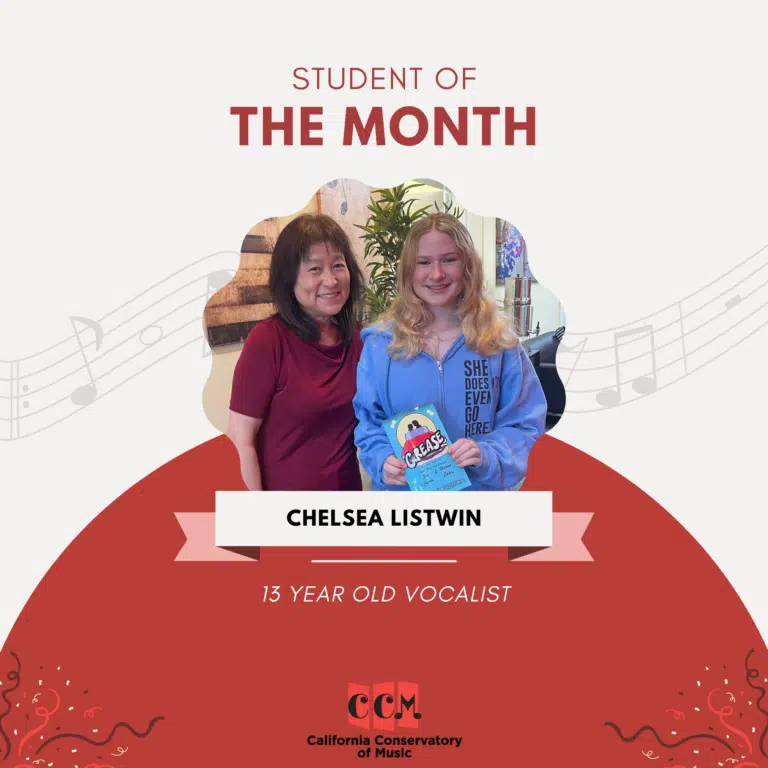
![ComposerMusician of the Month [POST] (1) Tania León composer of the month](https://thecaliforniaconservatory.com/wp-content/uploads/elementor/thumbs/ComposerMusician-of-the-Month-POST-1-1-qmty6wxa1r6clq4nn2djflsue696xsgu4bjn2gm8og.png)

